We exist at the intersection of Brazil and Chicago.
We exist at the intersection of Brazil and Chicago.
We always try to stay connected with current events happening in Brazil. Capoeira stems from the struggles of the lower-class, so these social issues are close to our hearts.
Capoeira started as during the slave trade in Brazil, as a way for slaves to practice self-defense without getting caught. They disguised it as a dance by incorporating music, instruments, and dance-live movements that could turn deadly. It was outlawed in Brazil until Mestre Bimba legitimized it.
Other traditional cultural dances are go ahnd-in-hand with the training capoeira since its origins.
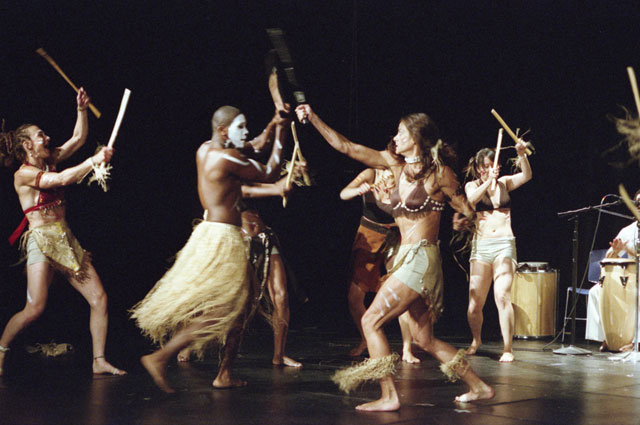
Either originating from slaves in sugar-cane plantations or from a real-life African hero named "Maculele" (conflicting stories), the tradition is represented today with a spectacular, high-energy mock-fight dance performed with sticks and machetes to the rapid beat of drums.
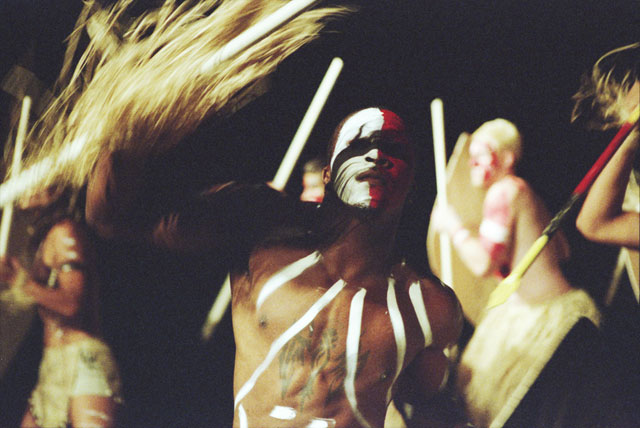
Dança Guerreira is a powerful dance representing a tribe preparing for fight. The choreography includes dancers in traditional clothing and body paint who are armed with swords and shields.
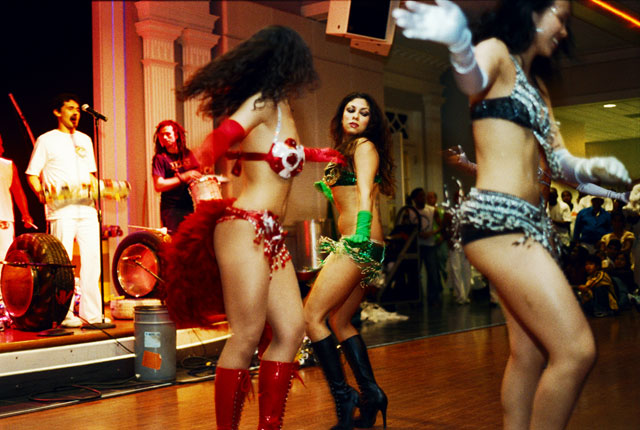
Samba, characterized by vibrating hips and fast moving feet, is the official Brazilian dance of Carnaval. Radiant dancers wear Carnaval costumes and dance to live samba percussion.

Puxada de Rede (or ‘pulling of the net’) is a folkloric theatrical dance about the simple life of Brazilian fishermen and the celebration of a successful catch. The graceful dance involves live music with passionate lyrics reflecting the natural beauty and daily struggles of the life of a fisherman.
Marisa Cordeiro brought capoeira from Brazil to Chicago, founding Gingarte Capoeira in 1991. Since then, our group has grown into a thriving community of over 100 students and performers, many of whom have been with the school for over a decade.
Our group started as a few capoeiristas in a park in Washington Park on Chicago's south side.
We have been housed at Jane Addams, in Hyde Park and in West Town. Many of our longest students have been promoted to teachers and continue to volunteer their time to teach for the organization presently.
You may have seen us performing around town in Millennium Park, Old Town School of Folk Music, Texas de Brasil, Carnivale, and other corporate events.
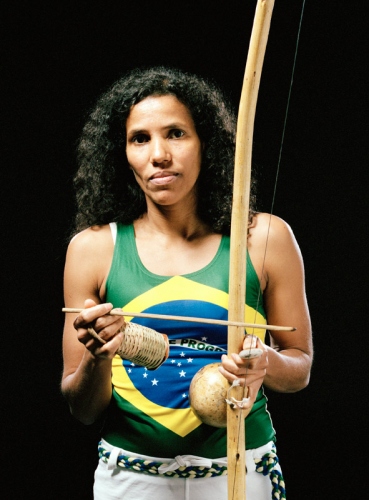
Our group trains and practices under the tutelage of Mestre Marisa Cordeiro, who ranks among the highest female capoeiristas in the United States. She is well respected both in the U.S. and Brazil as a pioneer for women in capoeira.
Mestre Marisa Cordeiro is the founder and executive director of Gingarte Capoeira and a shining symbol of the Brazilian community in Chicago. Born in Curvelo, Brazil, Marisa trained at the prestigious Cordão de Ouro Capoeira Academy in São Paulo with top instructors such as Mestre Suassuna, Mestre Canguru, and Mestre Urubu Malandro. She is one of the highest-ranking female capoeiristas in the world.
Mestre Marisa first came to the United States in 1989 as a performer with the renowned international group Oba Oba. They performed throughout the United States and Latin America. Two years later, she returned to Chicago and established Gingarte Capoeira in 1991.
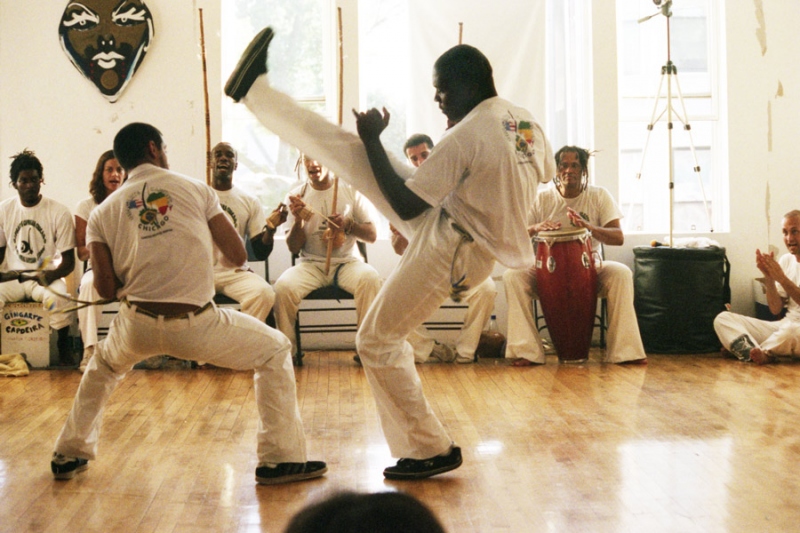

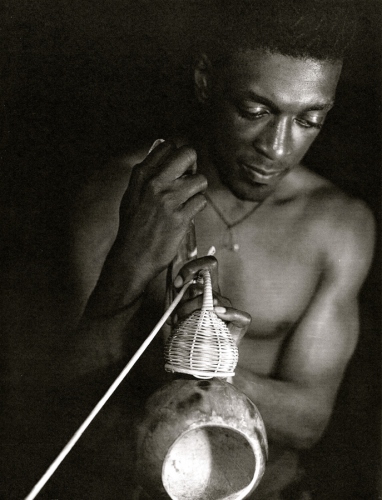
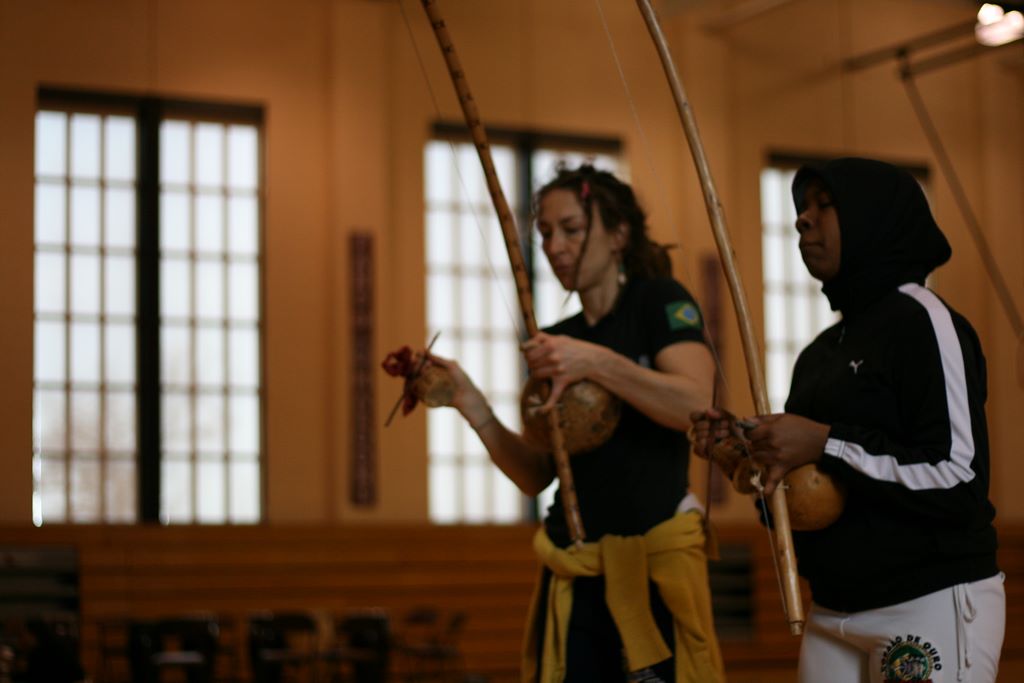
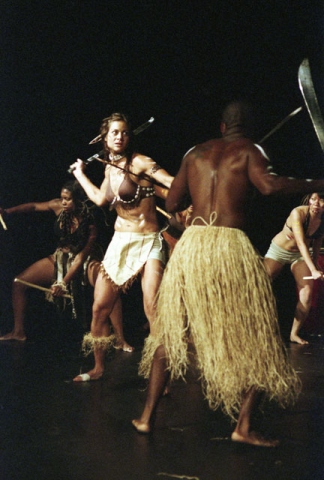
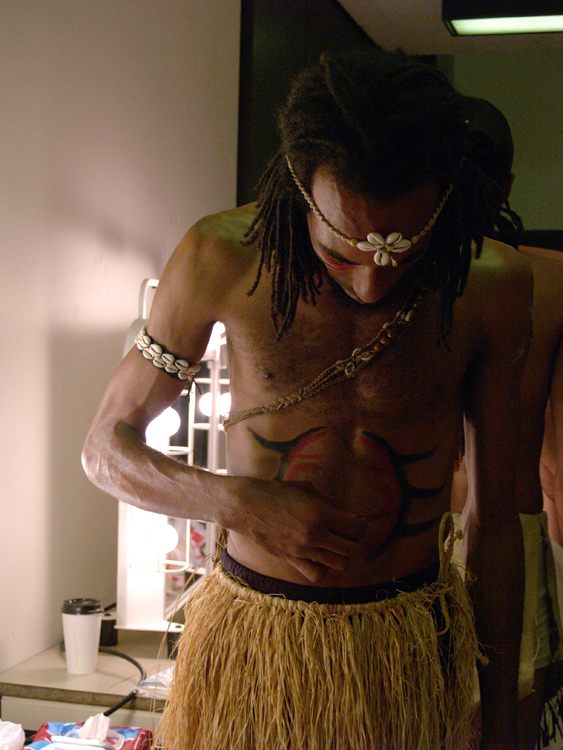
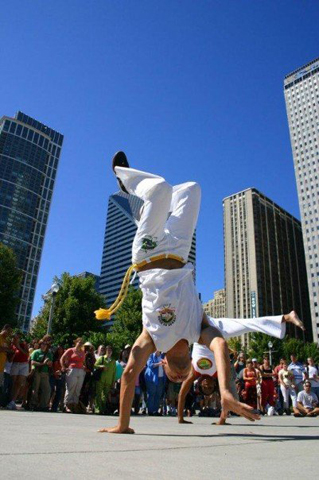
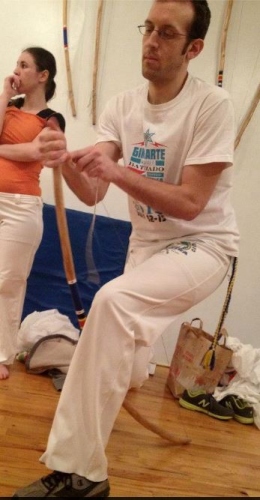
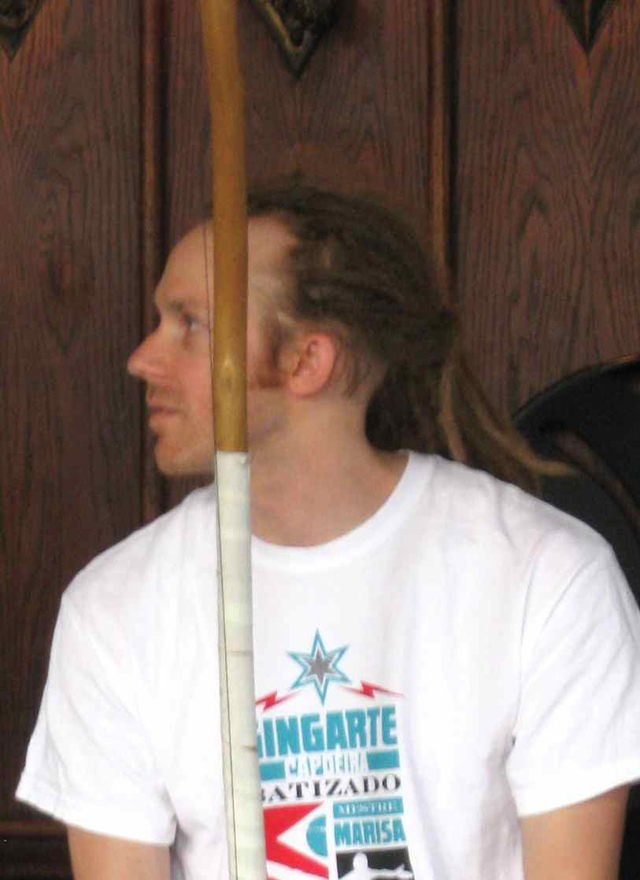
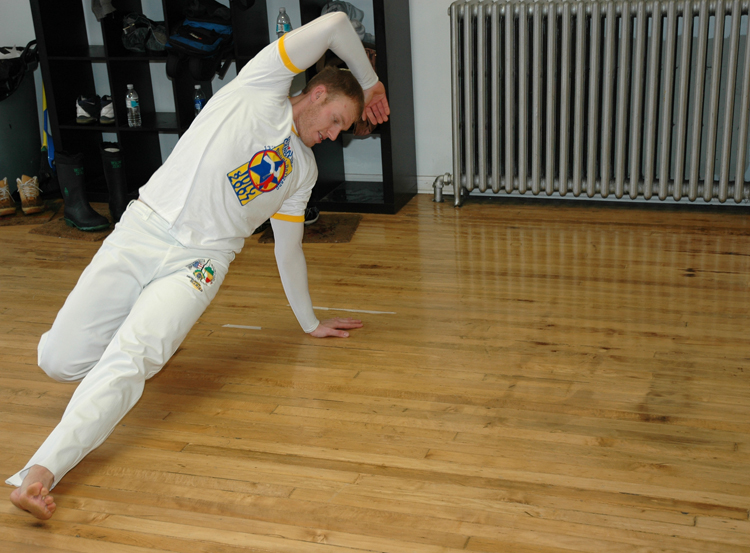
Gingarte students have volunteered countless hours to the art of Capoeira. The group could not function as it does without their tireless dedication to teaching, performing, and helping with the daily operations of our group throughout the Chicagoland area and US. This includes Professors and Instructors but also a core group of committed students - from beginners to advanced. Thank you teachers and students!
An integral part of Gingarte Capoeira Chicago is the Gingarte Capoeira Performance Company, created in 1996 under the direction of Marisa Cordeiro. Performances including Capoeira, Maculelê, Samba, Dança Guerrera, and Puxada de Rede are available for a wide range of audiences. Click here for more about booking us to perform.
Capoeira has the incredible power to provide focus, creativity and opportunity. We strive to bring our programs to underserved communities in Chicago. The struggle is strikingly and unfortunately similar to the struggle in Brazil, but capoeira's potential to provide a path towards success and education remains the same.
We also stay connected with Chicago's vibrant Brazilian community, by partnering with local cultural organizations as much as possible.
We are dedicated to bringing capoeira to as many people as possible. These are some of the many schools that we've worked with:



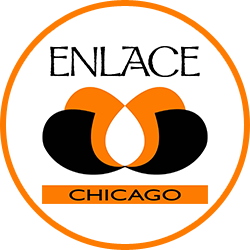


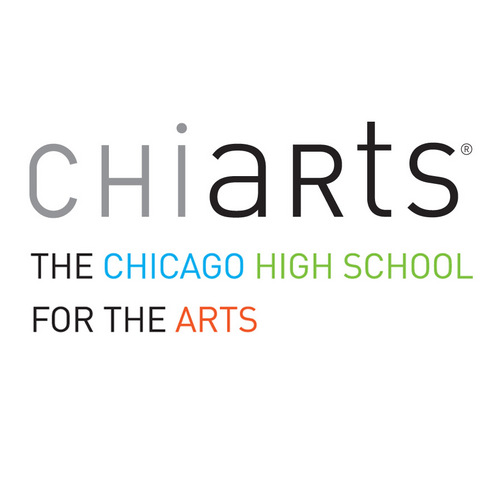




Also: Reavis Elementary, Cameron Elementary, Castellanos Elementary, Mark Sheridan Academy, Evanston?, Libraries?, UIC Jazz Camp
If you're interested in bringing capoeira to your school, please let us know here. If you're not ready for a program, you can always have us do a demonstration!
Our board meets regularly to help guide the overall vision of the group alongside Mestre Marisa, our Executive Director. This is distinct from our daily operations.
If you are interested in joining our Board of Directors, we accept nominations once a year. We look for members that hold a genuine interest in Capoeira and who can help expand our vision as a nonprofit.
As a completely volunteer-run organization, we are proud of our accomplishments. We have:
We have been generously sponsored throughout the years by countless partners. These are just a few:


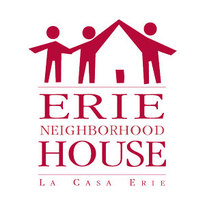


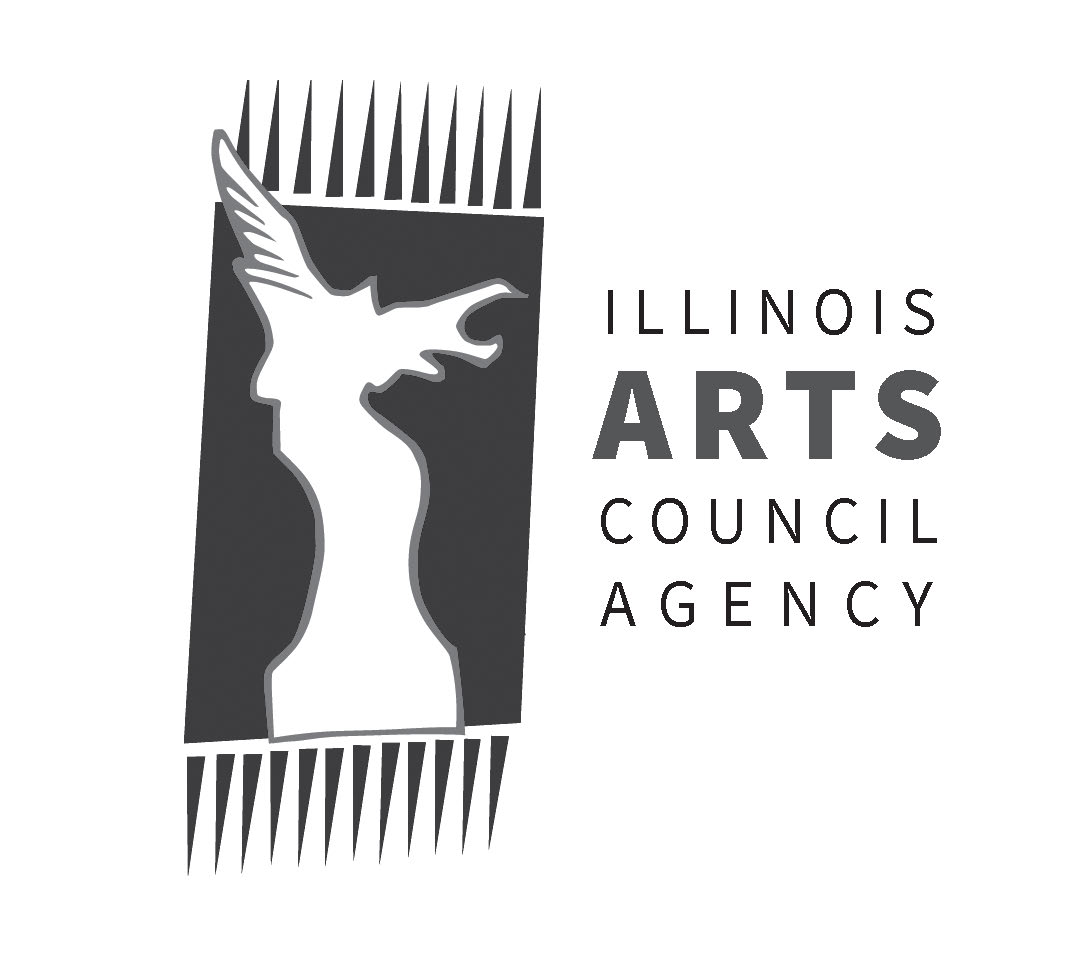


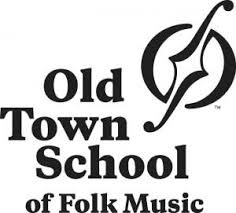


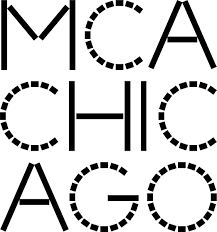



Also: University of Chicago RSO, Chicago Samba School, Evanston Samba School, Swing Brasileiro, Ruth Page Center for the Arts, Union Church?, Easter Seals?,